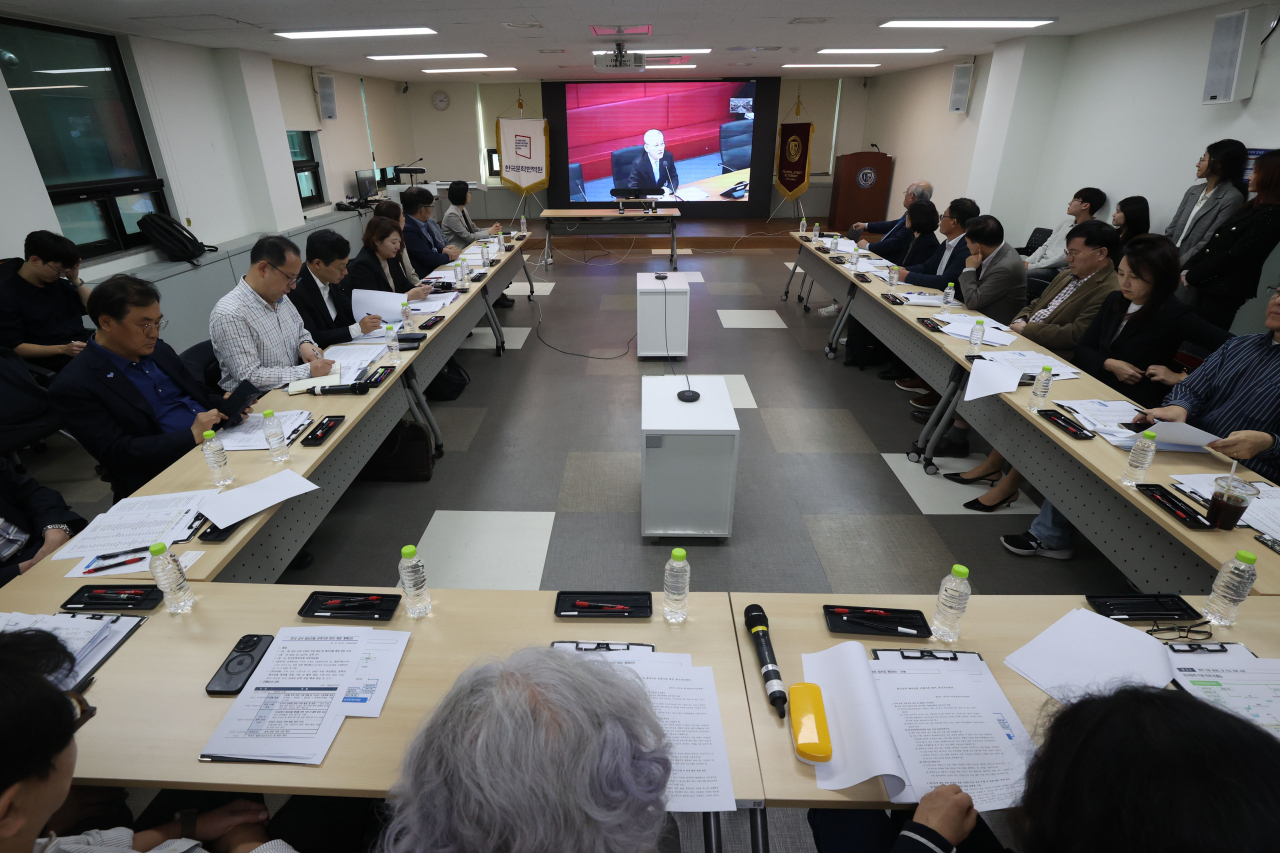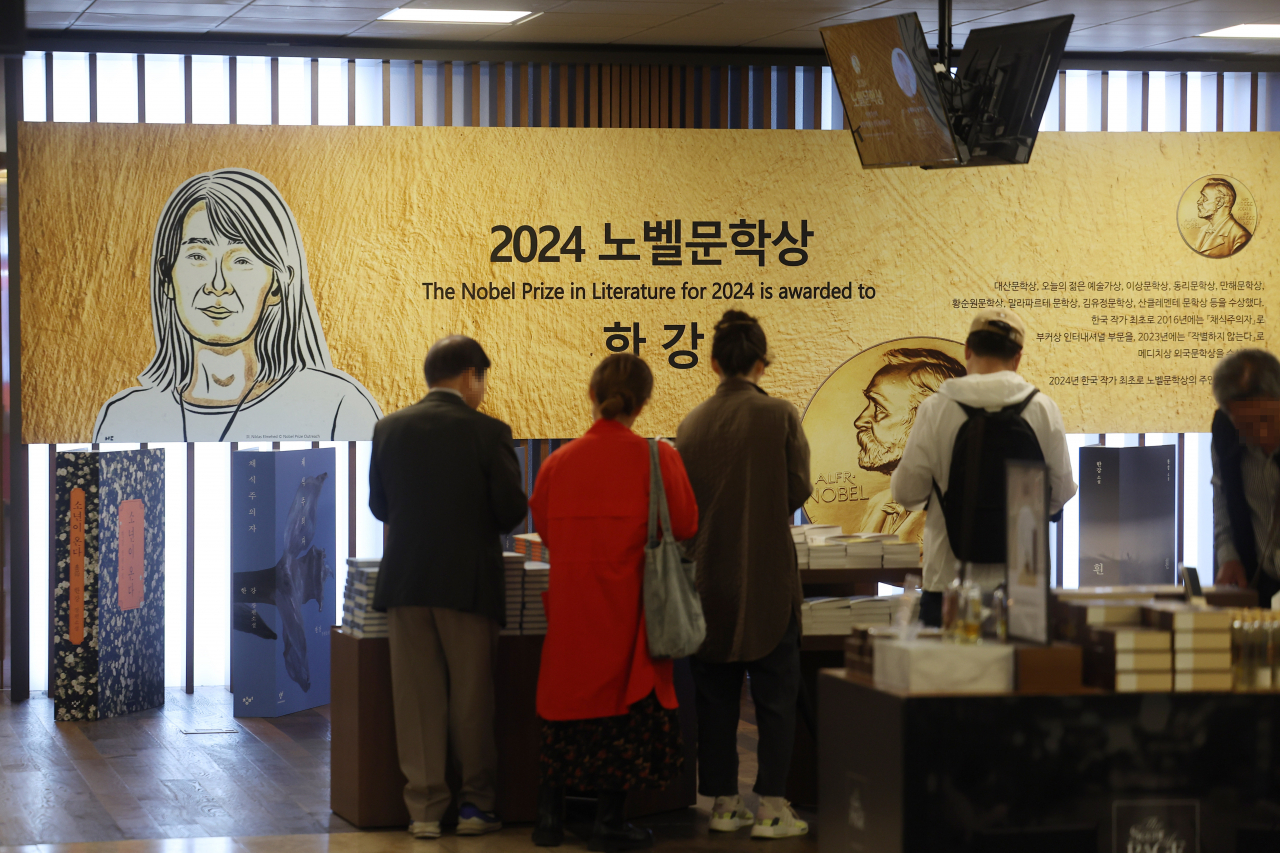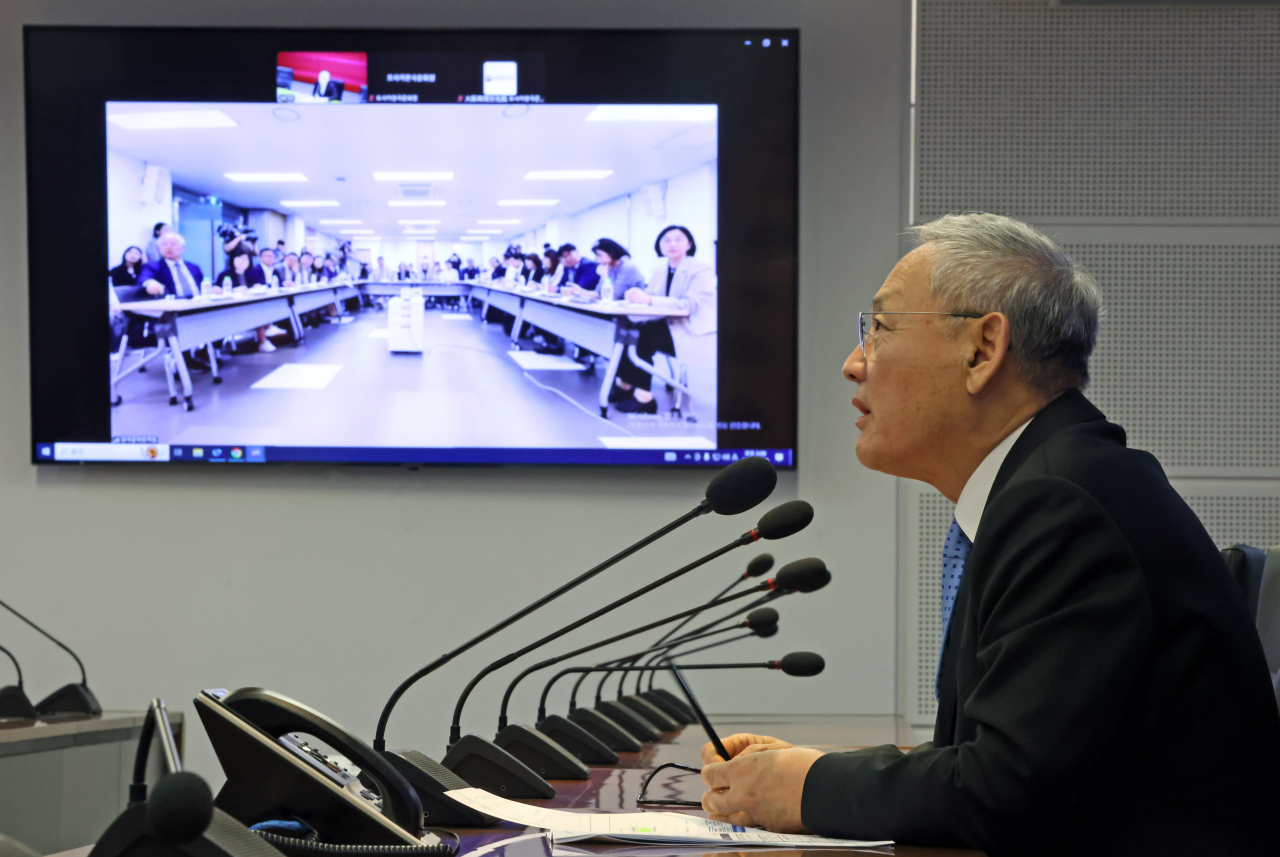
 > Life&Style > Culture
> Life&Style > Culture
 |
| Experts are gathered at the Literature Translation Institute of Korea in Seoul on Wednesday to discuss ways to promote Korean literature abroad. (Yonhap) |
The revitalization of the domestic literary market and critics' activities are prerequisites for Korea to achieve its next major literary milestone, according to experts in literature Wednesday.
Less than a week after Han Kang was announced the recipient of the Nobel Prize in Literature, the Ministry of Culture, Sports, and Tourism gathered experts -- ranging from writers to translators -- at the Literature Translation Institute of Korea in southeastern Seoul to brainstorm ways to sustain the momentum.
“We reflected on what we’ve done for Han Kang. LTI Korea provided 850 million won ($621,000) in translation support and 150 million won in international exchange support. Support was provided for Han Kang’s participation in the London Book Fair, where she met Deborah Smith, who later translated her work,” Chon Soo-yong, president of the Literature Translation Institute of Korea, said during the meeting.
“I believe that support for exchange programs has a significant impact. It appears that taxpayer money has been used efficiently,” Chon added, emphasizing that these initiatives should continue for authors.
"Taking Han Kang's Nobel Prize win as an opportunity, we need to adopt a much more proactive approach in terms of promoting reading, revitalizing small local bookstores and improving libraries," Culture Minister Yu In-chon said.
While the ministry plans to boost literary events such as the Seoul International Writers' Festival, Literature Week and the planned exhibitions at the Korean Literature Museum, experts said that revitalizing the domestic literature market must come first.
 |
| People check out Han Kang's books at Kyobo Bookstore in Gwanghwamun, central Seoul, Tuesday. (Yonhap) |
“A variety of books and distinctive authors need to emerge for there to be a 'second Han Kang.' Of course, international exchanges and translations are important, but the Korean-language literary market needs to be revitalized," said Lee Kwang-ho, chairman of the Korean Publishers Association.
Lee added, “The biggest weakness of Korean literature is that the Korean-language market is too small. It’s difficult to sell even 2,000 copies, meaning the royalties for authors are very low, and they have fewer opportunities to publish their next book." Noting that the market would not be able to grow without intervention, he suggested increasing the budget for literary sharing, tax cuts for publishers and promoting public lending rights.
For many years, there have been calls to increase support for translators and to upgrade the Translation Academy at the Literature Translation Institute of Korea to a graduate school specializing in translation studies.
“When I think of my students, many are capable of surpassing Deborah Smith (who translated Han Kang’s “The Vegetarian”), but the market is too limited, which is heartbreaking,” said Chung Eun-gwi, English translator and professor at Hankuk University of Foreign Studies. Noting that translation fees are similar to what they were 20 years ago, she said it is impossible to make a living as a translator. "I can't encourage my students to pursue it."
Others called for accrediting LTI Korea as a formal education institution. "If it becomes a formal educational institution rather than an academy, we could establish affiliated research institutes and produce new discourses aimed at international outreach,” Choi Ae-young, professor and French translator at LTI Korea, said.
 |
| Yu In-chon, minister of culture, sports and tourism, speaks during a meeting with literature experts on Wednesday. (MCST) |








